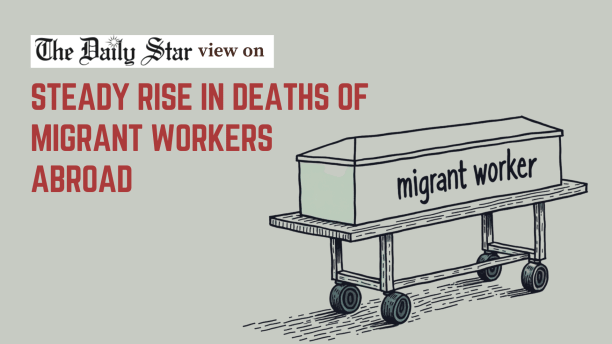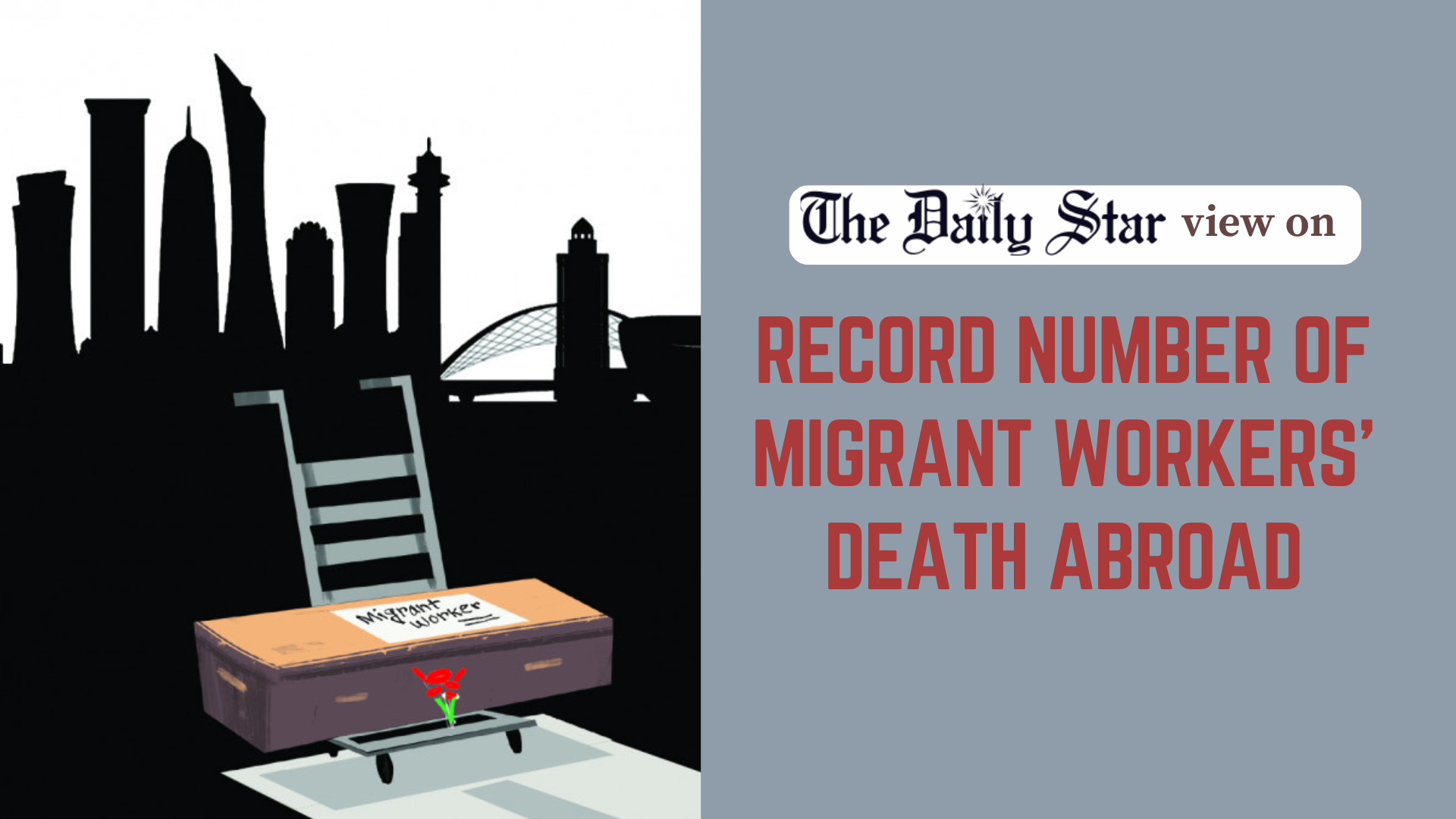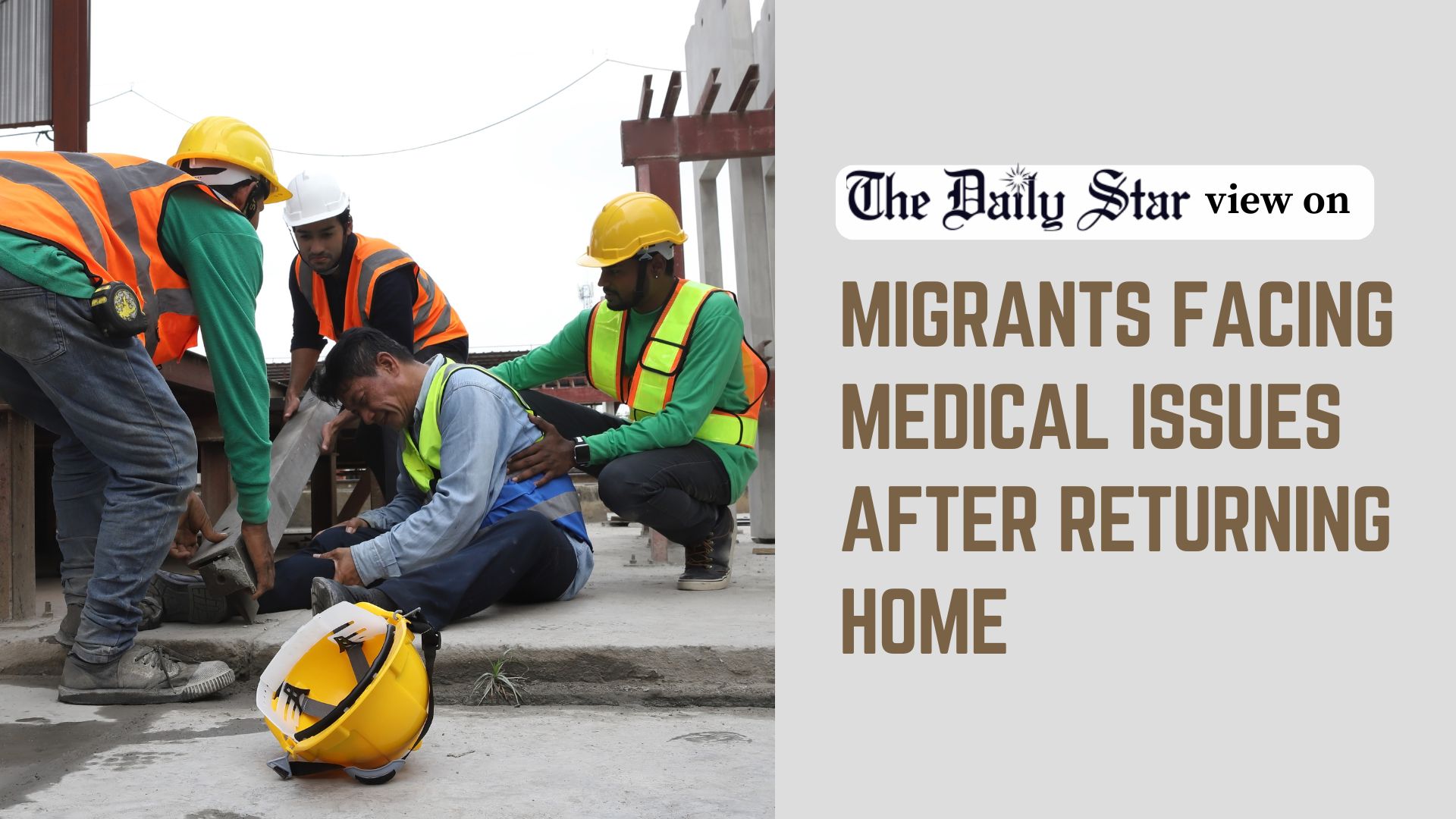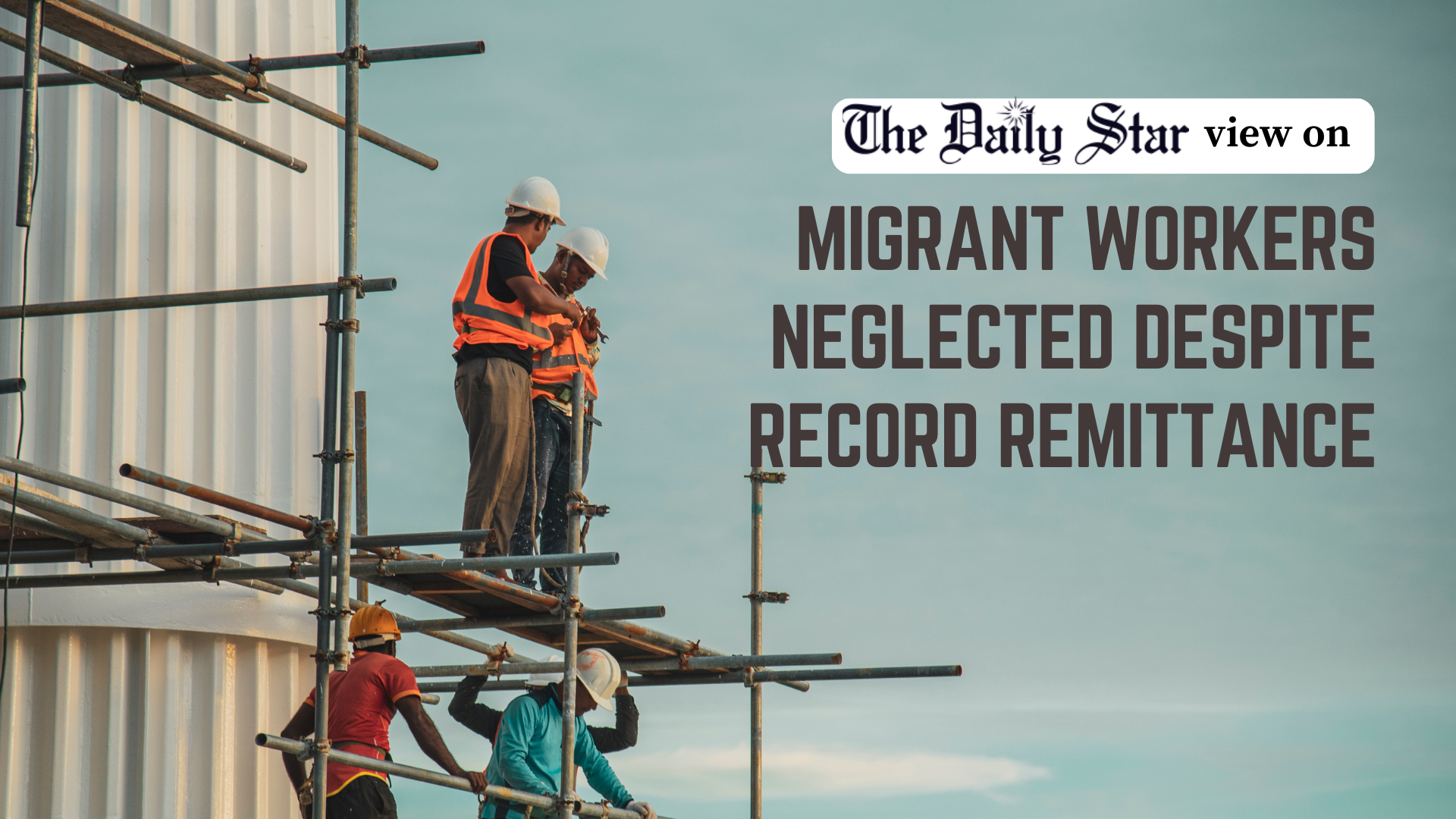Migrants' lives matter more than their remittances

It is unfortunate that we celebrate the remittance earnings of our migrant workers but our actions fall drastically short when it comes to ensuring their safety, dignity, and well-being both at home and abroad. In particular, the steady stream of coffins returning home—with migrants' lives cut short by health issues, workplace accidents, etc.—is a stark reminder of our collective failure to protect them.
According to the Wage Earners' Welfare Board, 4,813 bodies of migrant workers were brought back to Bangladesh in 2024 alone. The number of deaths has been rising steadily since 2020, increasing by more than 50 percent. In total, over the past four decades, at least 57,216 migrant workers' bodies have been repatriated. Many more are buried overseas, with families sometimes choosing not to bring the bodies home. When a body is repatriated, the Welfare Board provides Tk 35,000 for burial and transport costs. Besides, under a 2023 insurance scheme, families of insured workers who paid a one-time Tk 1,000 premium can receive up to Tk 10 lakh in the event of a work-related death.
Ironically, the official causes of death in most cases are listed as strokes, brain haemorrhages, or heart attacks—categorised as "natural causes." But experts have questioned this narrative, pointing out that most deceased workers were between 38 and 42 years old and reportedly had no prior health issues. Unfortunately, bodies are not re-autopsied upon return to Bangladesh. As a government official told this daily, rather unconvincingly, it is "difficult" to probe these untimely deaths further as autopsies conducted in host countries fall under their legal jurisdiction. But the question remains: Why, after all these years, have we failed to ensure a transparent and credible process for investigating the deaths of our migrant workers?
Government data shows that most of these deaths occur in the Gulf region, where extreme heat and gruelling work conditions—especially at construction sites—have taken a severe toll. A 2023 study highlighted the link between excessive heat and poor health outcomes among workers in the Gulf. Yet, there has been little visible effort to negotiate better terms for Bangladeshi workers abroad.
Given these realities, we urge the government to push for safer and more humane recruitment and working conditions in host countries. Employers must be compelled to comply with international labour standards, ensuring not just better wages but also improved living conditions and healthcare access. At the same time, migration costs must be reduced so that workers are not forced to endure dangerous jobs just to recover their investment. The authorities must also ramp up efforts to crack down on fraudulent agents involved in fake recruitment, wage theft, and forced labour. We must remember that migrant workers deserve protection, dignity, and justice. Their lives, health, and the well-being of their families must be as high a priority as the remittances they send home.



 For all latest news, follow The Daily Star's Google News channel.
For all latest news, follow The Daily Star's Google News channel. 



Comments